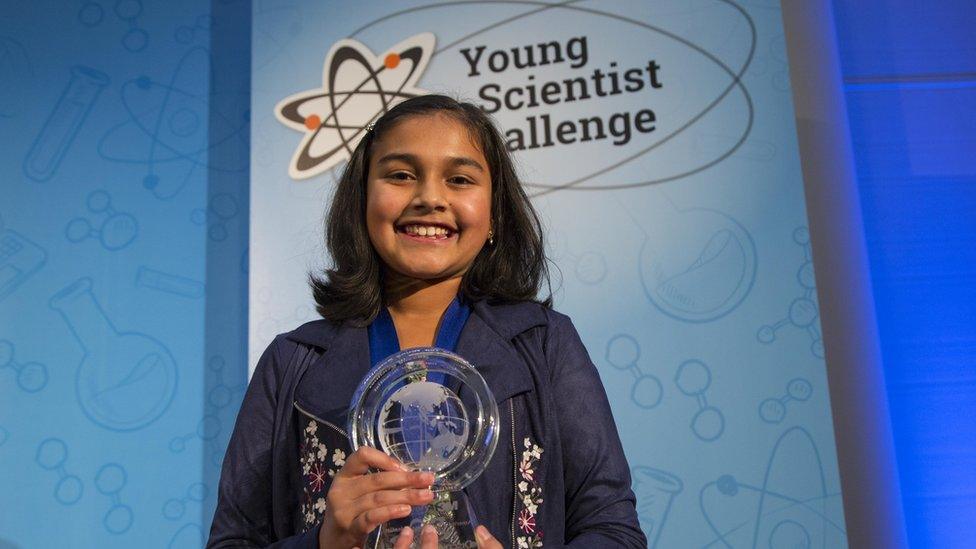Gitanjali Rao: Girl of 11 takes US young scientist prize
- Published

Gitanjali Rao's device could make testing water for lead contamination quicker and cheaper
A schoolgirl aged 11 has been honoured as "America's top young scientist" for inventing a quick, low-cost test to detect lead-contaminated water.
Gitanjali Rao was selected from 10 finalists who had spent three months collaborating with scientists to develop their ideas.
Her device uses carbon nanotubes to detect the presence of lead.
Thousands of US water systems are reportedly contaminated by lead.
Gitanjali's invention was inspired by the scandal in Flint, Michigan, where officials are facing charges including manslaughter over water contamination in 2014-15, she told Business Insider, external.
Flint resident Melissa Mays: 'Our hair fell out'
Until now, testing reliably for lead was expensive and meant sending away samples for analysis.
But Gitanjali's portable invention - named Tethys, after the Greek goddess for fresh water - allows a sensor linked to a mobile app to give an accurate, almost immediate analysis via a mobile app.
"If you take a shower in contaminated water, you do get rashes and that can easily be studied by an epidemiologist," she told Business Insider. "And if somebody drinks lead in their water, their children might have small, minor defects."
Gitanjali said she wanted to further refine the device so it could eventually go on the market.
She said she wanted to be either a geneticist or epidemiologist when she grew up.
Gitanjali won a $25,000 (£19,000) prize for scooping the top award at the 2017 Discovery Education 3M Young Scientist Challenge, external.
The innovations developed by the remaining nine finalists include:
The identification of a molecule that could potentially be used to treat Alzheimer's disease
A robot that helps reduce water wastage during lawn maintenance
A biodegradable material made from pomegranate husks and orange peel for cleaning up oil spills.